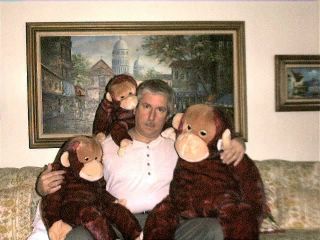Bleep Sleep
I have a problem, a problem that is probably going to take years off my life, as well as contribute to my descent into what is called the “grouchy old man” syndrome. I don’t sleep at night. The years of stress, trials and tribulations, utter rancor and dissatisfaction with my station in life, and bitter taste in the mouth from one too many battles lost have taken their toll on my sleep-wake cycle. I have been known to literally pass out in the middle of a conversation, fall sound asleep after eating an average-sized meal in the early evening, nod off at the wheel of my car on the highway on my daily drive home from work, and start to full wakefulness at 2:00 a.m. when average Joes and Josephines are at rest under warm blankets, souls of the departed find repose and sustenance in communal camaraderie, and not a creature is stirring, not even a mouse. In short, I have “bleeped sleep,” and do what I will, I cannot reverse the tide of chronic fatigue I feel and the vicious circle I have created. Simple daily survival has become my mantra, as I no longer take pleasure in the little things in life, and I subsist solely on the caffeine or battery of other stimulants that buttress a circadian rhythm gone awry. I find myself thinking that if I can only get from the “vampire hours” to the early evening, then my day is complete, and I can surrender completely to the narcolepsy and little brother catalepsy that medical science, in all its infinite wisdom, is just now beginning to understand.
I think time would be well spent here explaining and understanding the simple workings of normal sleep, in order to arrive at a solution to my, and possibly your, problem. It is a well-known fact that insomnia, whether it be trouble falling asleep or staying asleep, affects one third of American adults. Wow! To make matters worse, insomnia can result in excessive daytime sleeping, increased appetite, reduced mental abilities, a diminished immune system, growing frustration, and a decline in daytime productivity. Now, while the amount of sleep a person requires is relative, there is a general consensus that seven to eight hours a night is needed to feel fully alert during the day. No one in this life is without worries, and an occasional bout with sleeplessness is normal. When sleep problems persist, however, beyond a few weeks, it becomes necessary to call in the heavy artillery, namely, one’s family doctor. The latter, if a lack of drowsiness on one’s part permits an understanding of the knowledge imparted, can explain the difference between the two states of a normal sleep cycle, and that is that REM (rapid eye movement) sleep is the period in which dreams occur, as opposed to deeper non-REM sleep. The number 65 is something to remember, for at that age the sleep-wake cycle begins to function inefficiently, sleeping for long periods of time occurs less frequently, and illness, pain, medicines, or a frequent urge to urinate take their toll on ZZZZs and prolong the counting of sheep.
While I understand the problem at hand, there must be some reason why I find it hard to sleep. I refuse to believe that the motive is hidden and mysterious. Whatever the latter may be, there are things I can do to combat the utter desolation of tossing and turning, as the rest of the world regenerates its corporeal fuel cells for the coming day. An attempt at inner calmness on my part breeds a game plan from which I must deviate little. First and foremost, a bedtime routine is called for, in which I do the same thing every night before going to sleep. A quiet and dark bedroom helps and, if my inner demons don’t allow my repose in a reasonable amount of time, say 30 minutes, then a brief trip to another room before returning to bed may help. A light snack, such as warm milk or some crackers, before going to bed may be just what the doctor ordered, but knowing myself and my tendency to do everything in excess, I must remain vigilant against eating too much. A “worry wart” I am, so if I can just leave my problems outside the bedroom, and use the latter for sleeping and sex (and a lot of that!), not eating, talking on the phone, or watching television in bed, then I can become a worthy adversary to insomnia. That’s not all, however. Exercising a little each day, at the expense of daytime naps longer than 30 minutes, and avoiding alcohol, caffeine, and nicotine in the evening can’t hurt. Finally, and perhaps most importantly, I must learn to retrain my body to sleep at night. What does that mean? It means that if I can go to bed and wake up at the same time every day, then maybe this Count Dracula can transform himself into an innocuous Rip Van Winkle.
If none of the above measures bring somniferous satisfaction, then “oneth by land and twoeth by sea” sleep studies are warranted to discriminate between periodic limb movement disorder (PLMD) in which legs are kicked many times during sleep, sleep apnea with repeated breathing cessation during sleep, and narcolepsy with its sudden “sleep attacks” without warning, as well as to determine the source of insomnia, snoring, or teeth grinding. I’ve been told that thorough sleep clinic monitoring of my brain activity, body temperature, breathing rates, and muscle movements during sleep can help get to the bottom of this mess I find myself in.
I’ll keep you posted as to my daily daytime quest to uncensor my “bleep sleep,” that is, if I can stay awake long enough.
ã 2009, Albert M. Balesh, M.D. All rights reserved.


0 Comments:
Post a Comment
<< Home